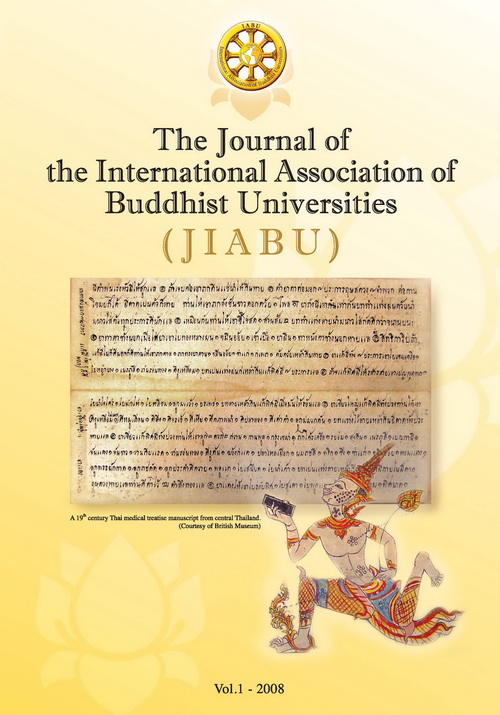Young People and Buddhist Ethics: 155 Tradition or Sense?
Main Article Content
Abstract
Come, Kālāmas. Do not go upon what has been acquired
by repeated hearing; nor upon tradition; nor upon rumour;
nor upon what is in a scripture; nor upon surmise; nor upon
an axiom; nor upon specious reasoning; nor upon a bias
towards a notion that has been pondered over; nor upon
another’s seeming ability; nor upon the consideration,
‘The monk is our teacher.’ Kālāmas, when you yourselves
know: ‘These things are good; these things are not blameable;
these things are praised by the wise; undertaken and observed,
these things lead to benefit and happiness,’ enter on and abide
in them.
Article Details
Views and opinions expressed in the articles published by The Journal of the International Association of Buddhist Universities (JIABU), are of responsibility by such authors but not the editors and do not necessarily reflect those of the editors.
References
Majjhima-nikāya, II
Aṅguttara-nikāya I
Atthasālinī
Golding, William., 1954, Lord of the Flies, London,
Faber & Faber Ltd.
Suvajra, 1996, The Wheel and the Diamond: The Life of
Dhardo Tulku, Glasgow, Windhorse Publications.
Guenther, H.V., trs., 1971, Jewel Ornament of Liberation,
Gampopa, London, Rider.


